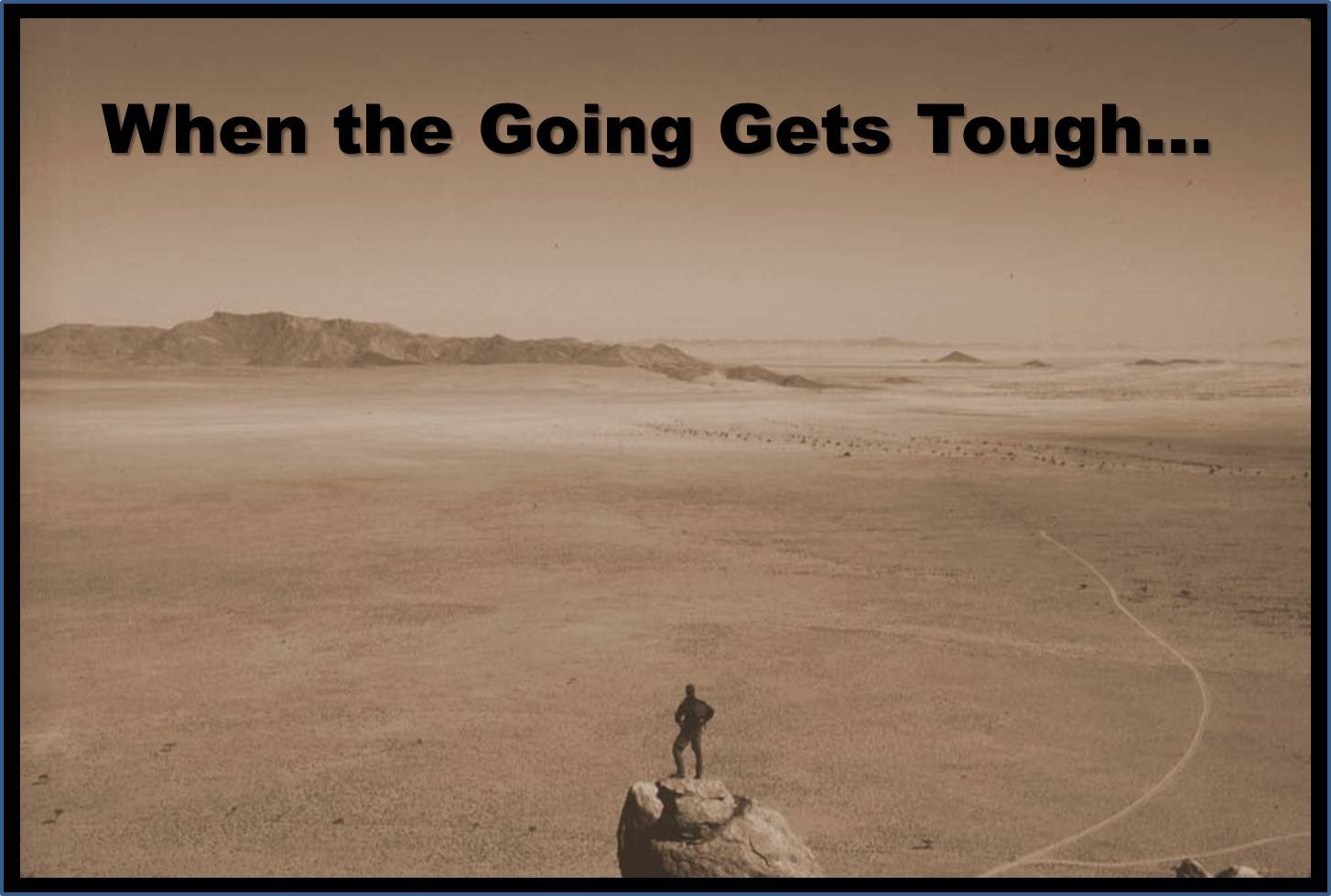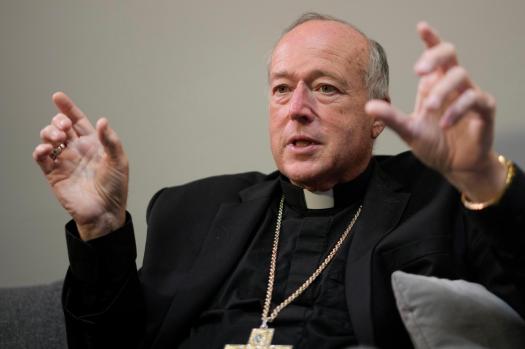When The Going Gets Tough: Political Parties And Compromise

Table of Contents
The Historical Importance of Political Compromise
Throughout history, political compromise has been the bedrock of significant societal advancements. Consider the Civil Rights Act of 1964, a landmark achievement born from arduous negotiations and bipartisan compromise. This legislation, while fiercely contested, ultimately transformed American society by outlawing discrimination based on race, color, religion, sex, or national origin. Without the willingness of diverse political factions to find common ground, this monumental progress would have been unattainable.
- Examples of successful bipartisan legislation: The Americans with Disabilities Act (ADA), the Clean Air Act, and various infrastructure bills demonstrate the power of bipartisan compromise to deliver tangible benefits to society.
- Positive societal impacts resulting from compromise: These compromises have resulted in improved public health, environmental protection, economic growth, and enhanced social justice.
- Potential consequences of an absence of compromise: The lack of political agreement can lead to political gridlock, diminished public trust in government, and an inability to address pressing societal challenges effectively. Negotiated solutions are essential for a functioning democracy.
Obstacles to Political Compromise
Several factors contribute to the current climate of political gridlock and the decline in political agreement. The increasing polarization of political parties is a major impediment. This divide makes finding common ground extremely difficult, often resulting in legislative stalemates.
- Increased political polarization: The rise of partisan media and social media echo chambers reinforces pre-existing beliefs, making it challenging for individuals to engage in constructive dialogue with those holding opposing viewpoints.
- Role of social media and echo chambers: These platforms often amplify extremist views and contribute to a climate of hostility and distrust, hindering the potential for political compromise.
- The influence of partisan media and fundraising: Partisan news outlets often prioritize sensationalism and divisive rhetoric over factual reporting and balanced perspectives, further fueling political division. Similarly, large campaign donations can skew political priorities towards special interests, making bipartisan agreement more difficult.
- Gerrymandering and its effect on representative government: Gerrymandering, the practice of manipulating electoral district boundaries to favor one party, can create safe seats for incumbents and reduce the incentive for politicians to compromise with the opposition. This tactic undermines representative government and exacerbates partisan divides.
Strategies for Fostering Political Compromise
Overcoming the obstacles to political compromise requires a multifaceted approach that involves individual citizens, political leaders, and institutional reforms.
- Promoting civil discourse and respectful dialogue: Encouraging respectful communication and active listening skills is vital. Individuals need to be open to hearing and considering diverse perspectives, even if they disagree.
- Encouraging collaboration and finding common ground: Focusing on shared goals and values, rather than emphasizing differences, can create a more conducive environment for finding common ground and building consensus.
- The role of independent fact-checking and media literacy: Improving media literacy skills and promoting independent fact-checking organizations can help combat the spread of misinformation and promote more informed political discourse.
- Reforming campaign finance laws to reduce the influence of special interests: Limiting the influence of large campaign donations can help level the playing field and allow politicians to focus on the interests of their constituents rather than special interests.
The Role of Political Leadership in Compromise
Effective political leadership is paramount in facilitating political compromise. Leaders must demonstrate a willingness to negotiate, compromise, and build consensus.
- Examples of leaders who successfully brokered deals: Historical figures like Abraham Lincoln and leaders who successfully negotiated international treaties showcase the power of skillful diplomacy.
- The importance of empathy and understanding diverse perspectives: Leaders who can empathize with and understand the concerns of various groups are better equipped to find mutually acceptable solutions.
- The need for strong communication and negotiation skills: Effective communication and skilled negotiation are essential tools for navigating complex political issues and forging political agreements.
The Impact of Political Compromise on Policy and Governance
Effective political compromise results in positive outcomes for policymaking and governance.
- Improved efficiency and effectiveness of government: When political parties work together, government functions more efficiently and effectively, leading to the timely implementation of critical policies.
- Increased public trust and confidence in institutions: Successful bipartisan cooperation can boost public confidence in the government's ability to address important issues and restore faith in democratic processes.
- More effective and equitable policy outcomes: Compromise often leads to more comprehensive and equitable policies that reflect the diverse needs and interests of the population. Achieving political stability through compromise ultimately leads to better policy solutions.
Conclusion
Political compromise is not merely a desirable ideal; it is a fundamental necessity for a healthy democracy. The challenges to political compromise are substantial, ranging from increased polarization to the influence of special interests. However, by promoting civil discourse, encouraging collaboration, reforming campaign finance laws, and demanding more from our elected officials, we can create an environment conducive to achieving political compromise. Ultimately, fostering a culture of political compromise requires active participation from all citizens. Demand better from your elected officials and advocate for policies that encourage collaboration and understanding. The future of effective governance hinges on our collective ability to bridge partisan divides and find common ground. Let's work together to prioritize political compromise and build a more unified and prosperous future.

Featured Posts
-
 Godzilla X Kong 3 Jack O Connells Role And Impact
Apr 25, 2025
Godzilla X Kong 3 Jack O Connells Role And Impact
Apr 25, 2025 -
 House Of Hair Newton Aycliffe Celebrates Top Ten Echo Ranking
Apr 25, 2025
House Of Hair Newton Aycliffe Celebrates Top Ten Echo Ranking
Apr 25, 2025 -
 Conclave Crisis Will A Convicted Cardinal Participate In Choosing The Next Pope
Apr 25, 2025
Conclave Crisis Will A Convicted Cardinal Participate In Choosing The Next Pope
Apr 25, 2025 -
 A Strategic Partnership Analyzing Chinas Proposal For Collaboration With Canada
Apr 25, 2025
A Strategic Partnership Analyzing Chinas Proposal For Collaboration With Canada
Apr 25, 2025 -
 Eu China Relations Sanctions On Meps Reportedly Set To End
Apr 25, 2025
Eu China Relations Sanctions On Meps Reportedly Set To End
Apr 25, 2025
Latest Posts
-
 Misterul Dosarelor X Revine La Galati
Apr 30, 2025
Misterul Dosarelor X Revine La Galati
Apr 30, 2025 -
 Revelatii Uluitoare Dosarele X Si Galati O Investigatie Reluata
Apr 30, 2025
Revelatii Uluitoare Dosarele X Si Galati O Investigatie Reluata
Apr 30, 2025 -
 Dosarele X Redeschise Ce Se Intampla La Galati Viata Libera Galati
Apr 30, 2025
Dosarele X Redeschise Ce Se Intampla La Galati Viata Libera Galati
Apr 30, 2025 -
 Dosarele X Se Redeschid Investigatiile Viata Libera Galati
Apr 30, 2025
Dosarele X Se Redeschid Investigatiile Viata Libera Galati
Apr 30, 2025 -
 Dosarele X O Redeschidere Posibila Viata Libera Galati
Apr 30, 2025
Dosarele X O Redeschidere Posibila Viata Libera Galati
Apr 30, 2025
